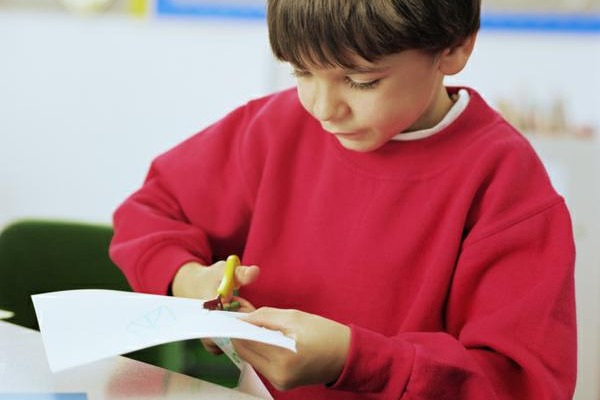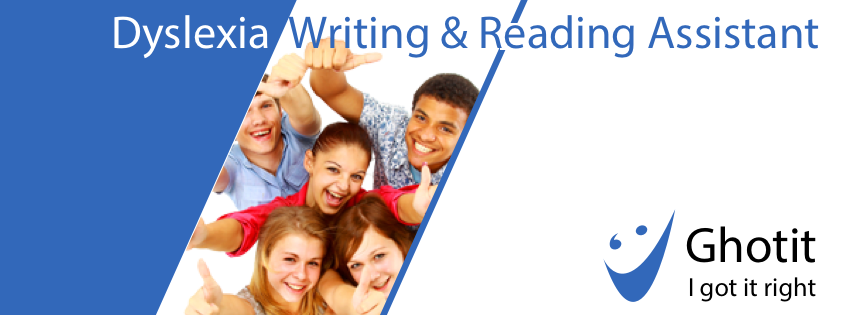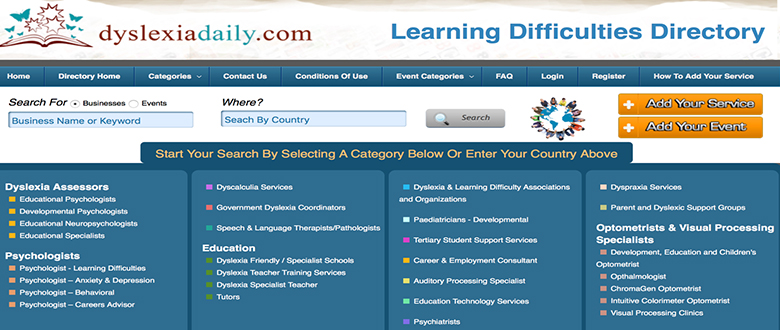Attention deficit hyperactivity disorder (ADHD) is a problem of not being able to focus, being overactive, not being able control behavior, or a combination of these. A brief timeline 1798: Sir Alexander Crichton, a physician-scientist, uses a term he called “mental restlessness.” 1902: George Still, first to describe ADHD in...
Continue reading...
In Australia, the rate at which parents are delaying their children’s entry into school appears to be increasing. My research, undertaken with Professor Sue Walker, has indicated that in Queensland, rates of delayed entry to state schools increased between 2010 and 2014. In that five-year period, delayed entry rates almost...
Continue reading...
Introduction Ghotit “Real Writer and Reader” V5 is the latest version of this simple to use and master, yet very powerful literacy support tool. Separate versions for MS Windows and Apple Mac are available. Ghotit Real Writer and Reader, now at Version 5, is a very comprehensive reading and writing...
Continue reading...
The US Glossary of Education Reform is a free, online resource that explicates and contextualizes major terms, concepts, and strategies in public-education reform. The glossary is designed to give journalists, parents, and the public an accessible, easily navigated, go-to reference for accurate, factual, and objective information on major education-reform issues...
Continue reading...
Before beginning official schooling, parents can give their young children a boost in learning mathematics by noticing, exploring and talking about maths during everyday activities at home or out and about. New research shows that parents play a key role in helping their children learn mathematics concepts involving time, shape,...
Continue reading...
Literacy involves meaning-making with materials that humans use to communicate – be they visual, written, spoken, sung, and/or drawn. Definitions vary according to culture, personal values and theories. We look to a broad definition of literacy as guided by UNESCO to be inclusive for all families. Children learn to be...
Continue reading...
The Difference is Personal The degree of difficulty a dyslexic person has with reading, spelling, and/or speaking varies from person to person apparently due to inherited differences in brain development, as well as the type of teaching the person receives. The brain is normal, often very “intelligent,” but with strengths...
Continue reading...
In a nondescript, state-of-the-art lab in Oechsle Hall at Lafayette College in Pennsylvania, USA Associate Professor of Psychology and Neuroscience, Lisa Gabel monitors her students. Her undergrads are assessing how lab rats negotiate a maze, which is similar to a virtual maze that children will navigate with a joystick on...
Continue reading...
Did your child struggle to do a jigsaw puzzle, learn to crawl, walk, skip and hop when they were little and now finds writing with a pencil or pen difficult? Then your child may have dyspraxia. Dyspraxia is also called clumsy child syndrome. Some specialists refer to it as a...
Continue reading...
As you can imagine as the editor of Dyslexia Daily, I receive a lot of emails. Some of those email break my heart. Today I received one such email today from a grandmother whose 14 year old granddaughter was in trouble. I don’t mean she had broken a school rule...
Continue reading...




























